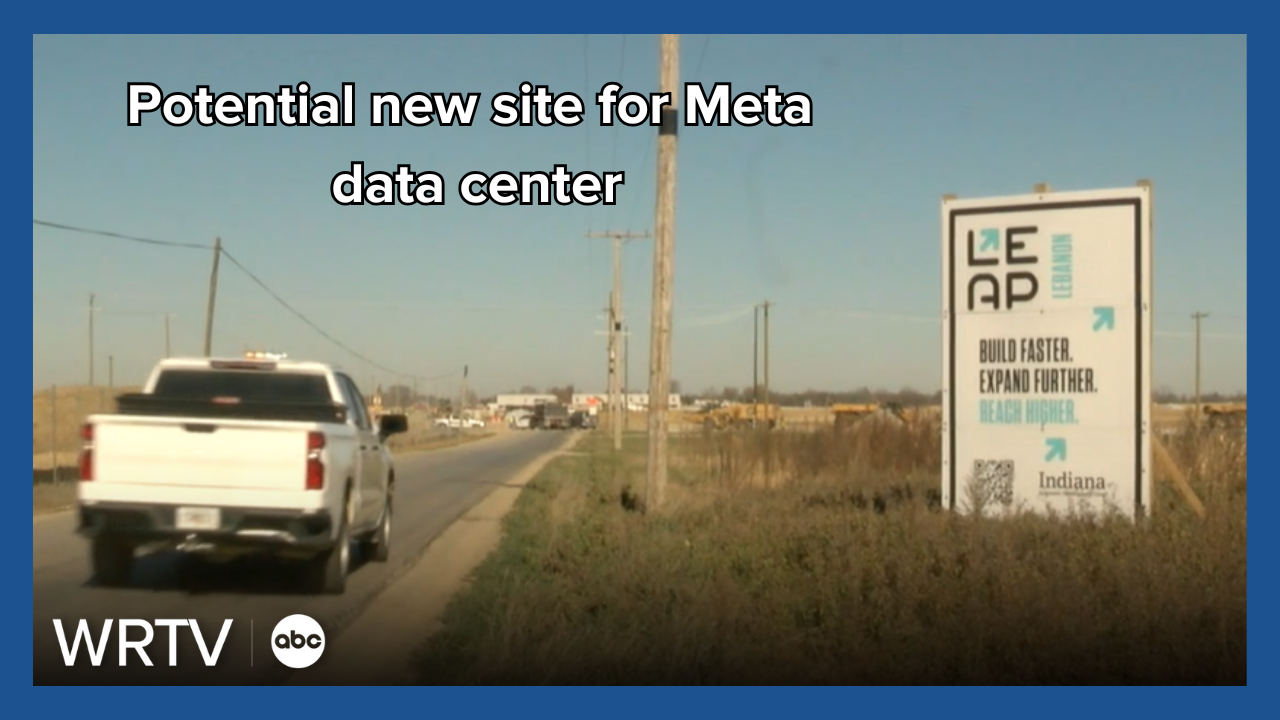LEBANON — The Leap Innovation and Research District in Lebanon may soon become the site of a new data center, with Meta — the parent company of Facebook — looking to establish a presence in the research park. The city anticipates that the project could inject millions into the community, although some residents and advocacy groups have expressed concerns regarding its potential impacts.
On Monday, the Lebanon Planning Commission issued a favorable recommendation for Meta's project, which is expected to occupy 1,500 acres within the Leap District. This six-phase initiative is projected to cost approximately $4.8 billion, a development Mayor Matt Gentry (R) believes will secure the future of the Leap District.
"Having a significant both user, but then also capital investment along with it, has allowed us to then facilitate this water supply without impacting rate payers,” Gentry said.
The city has an agreement with Citizens Energy to provide water for the Leap District, sourcing it from Indianapolis. Gentry says the data center is estimated to generate about $80 million in property taxes over the next 15 years, along with approximately $30 million in community impact payments during the same period.
While the water initiative aims to prevent increases in monthly bills for residents, organizations such as the Citizens Action Coalition warn that taxpayers across the state ultimately bear the financial burden of the project.
"Leap District users pay for the upgrades; however, the upfront costs and the financing costs are being subsidized by the state of Indiana. They are tapping into a revolving fund that has limited amounts of money in order to construct and build this project out,” said Ben Inskeep, Program Director at CAC.
Brian Daggy, a resident living adjacent to a portion of the Leap District, voiced his concerns regarding the project's tax implications. He mentioned that the data center is being offered a 50% property tax abatement, which he feels diminishes its overall viability.
"At what point are we hurting the state more than we are helping it, and that's one of the concerns I've got,” Daggy said. "What the perception is from a lot of us is we are doing a lot of things to create jobs, but we are just chasing our own tail because we don't gain much in the long run."
The data center is expected to generate 50 to 80 jobs in its first phase, with the total projected job count reaching around 200 by the project's completion. The Lebanon City Council is slated to vote on the plan at its next meeting on Monday.





